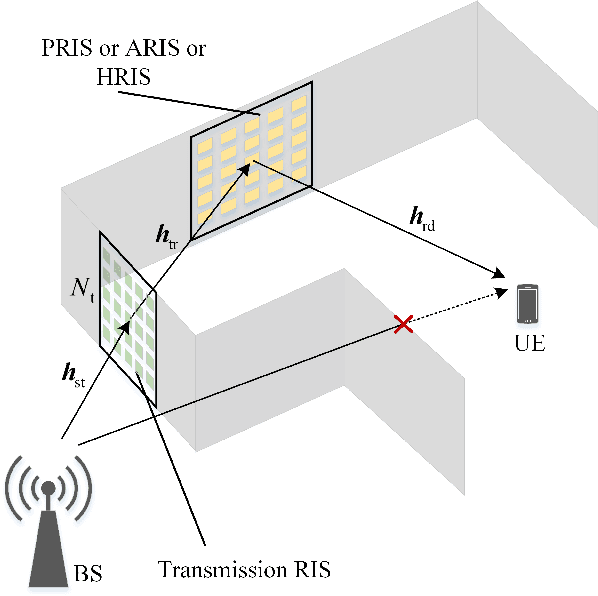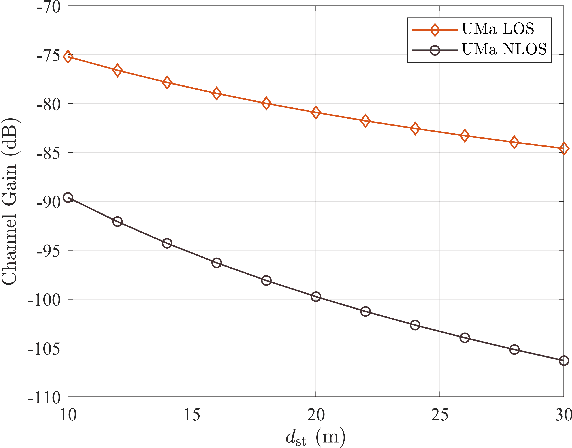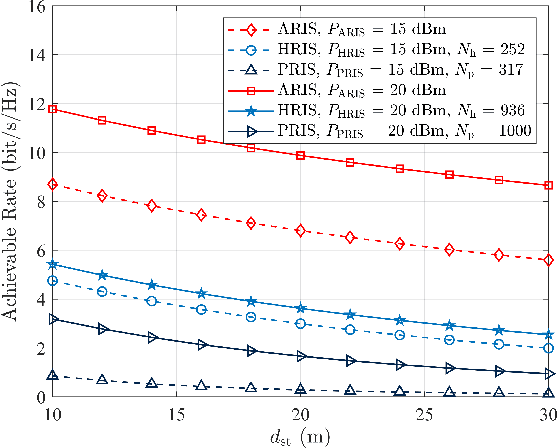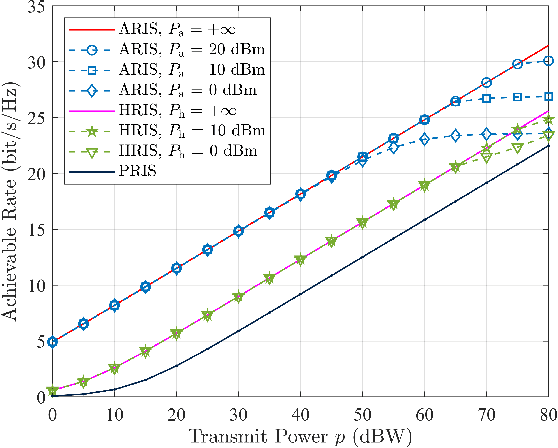Active RIS-Assisted mmWave Indoor Signal Enhancement Based on Transparent RIS
Paper and Code
May 16, 2023



Due to the serious path loss of millimeter-wave (mmWave), the signal sent by the base station is seriously attenuated when it reaches the indoors. Recent studies have proposed a glass-based metasurface that can enhance mmWave indoor signals. The transparent reconfigurable intelligent surface (RIS) focuses on the mmWave signal to a specific location indoors. In this paper, a novel RIS-assisted mmWave indoor enhancement scheme is proposed, in which a transparent RIS is deployed on the glass to enhance mmWave indoor signals, and three assisted transmission scenarios, namely passive RIS (PRIS), active RIS (ARIS), and a novel hybrid RIS (HRIS) are proposed. This paper aims to maximize the signal-to-noise ratio (SNR) of the received signal for the three assisted transmission scenarios. The closed-form solution to the maximum SNR is presented in the PRIS and the ARIS-assisted transmission scenarios. Meanwhile, the closed-form solution to the maximum SNR for the HRIS-assisted transmission scenario is presented for given active unit cells. In addition, the performance of the proposed scheme is analyzed under three assisted transmission scenarios. The results indicate that under a specific RIS power budget, the ARIS-assisted transmission scenario achieves the highest data rate and energy efficiency. Also, it requires very few unit cells, thus dramatically reducing the size of the metasurface.
 Add to Chrome
Add to Chrome Add to Firefox
Add to Firefox Add to Edge
Add to Edge